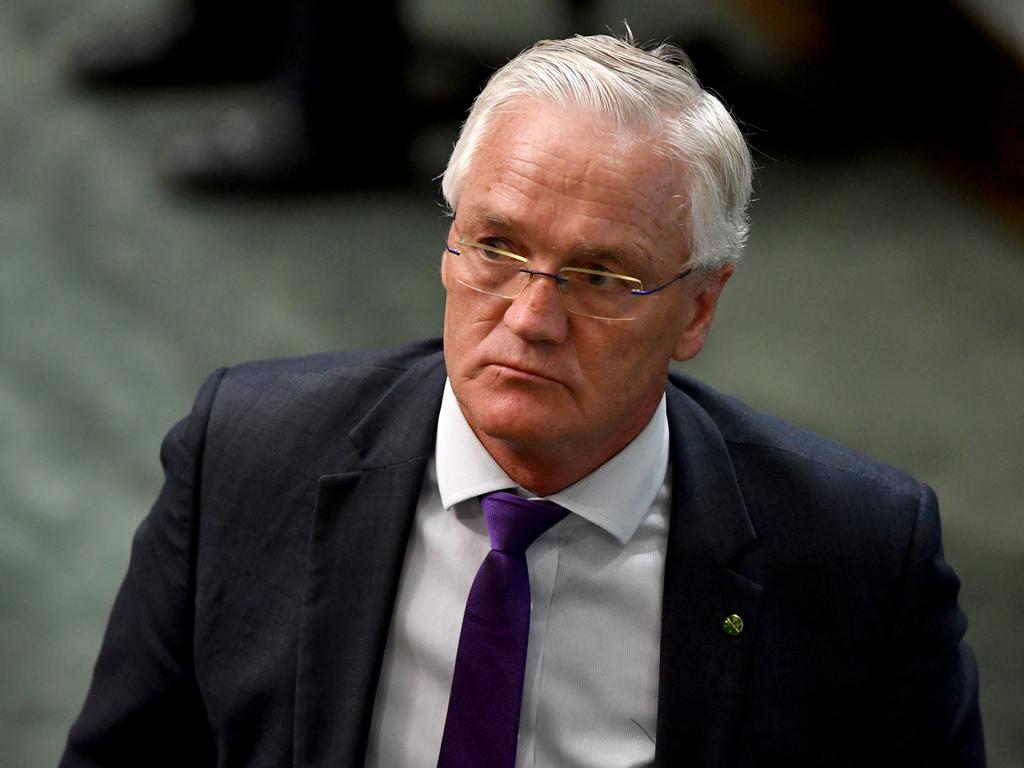‘Highly insufficient’: Australia’s climate goals slammed at COP26
Scientific research group questions Australia’s gas subsidisation in shock report warning of 2.4 degrees temperature rises by end of this century.

Respected scientific research group Climate Action Tracker has given a withering assessment of Australia’s climate policies in a shock report that warned of global temperature rises of 2.4 degrees by the end of this century.
Despite a rush of fresh targets to reduce carbon emissions this decade at COP26 in Glasgow – but not from Australia – the CAT said policy implementation on the ground was advancing at a snail’s pace.
The CAT report criticised Australia on a number of fronts, including that it refused to cut out coal-fired power by 2030 and that it subsidised gas production.
The report was compiled ahead of the Australian government’s pre-COP26 pledge for net zero by 2050. But Canberra was chastised for ramping up a “gas-fired recovery” over a green economic recovery and its refusal to increase a 2030 domestic emissions target. The CAT’s new overall rating for Australia is “highly insufficient”.
Global temperature rises above 2°C are predicted to create a maelstrom of deadly environmental impacts from record heatwaves, rises in sea levels, destruction of ice sheets and ocean devastation, including of coral reefs.
“Under current policies (rather than the pledges), we estimate end-of-century warming to be 2.7°C,” the report says. If all 2030 pledges are factored in, the rise is still estimated at 2.4°C.
“While this temperature estimate has fallen since our September 2020 assessment, major new policy developments are not the driving factor. We need to see a profound effort in all sectors, in this decade, to decarbonise the world to be in line with 1.5°C,” CAT report authors said.
Satyendra Prasad, Fiji’s ambassador to the United Nations, warned of island nations being overwhelmed: “Beyond 1.5 we cannot imagine a future. It is not a number for negotiation.”
The CAT report said: “Even with all new Glasgow pledges for 2030, we will emit roughly twice as much in 2030 as required for 1.5°. Therefore, all governments need to reconsider their targets.”
Earlier global warming predictions, including one issued last week by the International Energy Agency, were more optimistic: that the world was heading to 1.8°C of warming; but that analysis was based on the longer 2050 pledges, and with a caveat that all of the promises were carried out.
“Glasgow was meant to keep the Paris agreement’s 1.5°C limit in sight, but the 2030 emissions gap is still so huge that we can’t really see that being possible at present,” Bill Hare, the chief executive of Climate Analytics, said.
He said some countries were trying to portray that the 1.5°C limit was achievable on current policies and they were downplaying the need for urgent and immediate changes.
COP26 president Alok Sharma said there had been a number of reports and analyses of national country commitments, all demonstrating there has been some progress – but he agreed it was “clearly not enough (action).”
“If we look at where we were heading before Paris, the trajectory was heading to six degrees of global warming; post Paris commitments to below four degrees, and now we have bent the curve towards two degrees,” Mr Sharma said.
“That is not good enough, we want to say with credibility we are keeping 1.5 alive, within reach.”
Live from Glasgow 📺
— COP26 (@COP26) November 9, 2021
Watch the #COP26 Presidency Press Conference with COP President @AlokSharma_RDG, COP26 Head of Cross-Cutting Issues @SalkaMargret and the @UNFCCC.
ðŸ—“ï¸ 9 November#TogetherForOurPlanethttps://t.co/LrbXusVewK
Mr Sharma refused to address a question whether countries like Saudi Arabia, Brazil and Australia were standing in the way of negotiations around transparency.
Negotiators are spending the next few days debating the wording of the “cover” agreement that may be announced at the end of COP26 this weekend, and whether annual reporting may be required of nations to achieve a 2030 target.
Australian Conservation Foundation manager Gavan McFadzean said Australia was one of a small number of countries that didn’t update their 2030 carbon emissions target and there was a push from other countries to make them accountable.
He told The Australian: “There may be some wording about countries who haven’t revised their 2030 target to do it next year. These are the countries that have been frankly recalcitrant until this point and other countries are exasperated and looking for diplomatic ways to continue to turn the screws on Australia’s performance.”





To join the conversation, please log in. Don't have an account? Register
Join the conversation, you are commenting as Logout